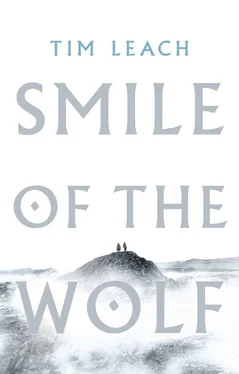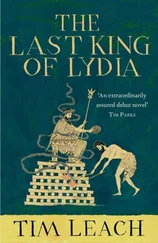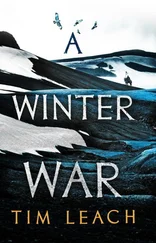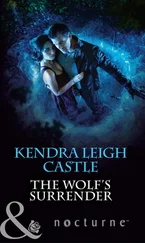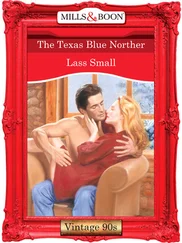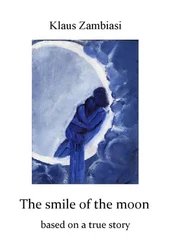I stood and yawned under the heat of the sun. I turned to Gunnar, offered my hand and said, ‘Good fortune, Gunnar. I shall see you at the Althing.’
He did not answer me. He simply stared into that cup as though he had been ensorcelled by it, and I thought at first that I had offended him. He blinked and looked up at me, and he said: ‘Will you stay for the winter?’
‘I did not think that you would ask.’
‘Did you want me to ask?’
‘Yes.’ I thought for a time. ‘For one year. I cannot do more than that.’
He reached out and took my hand in his for a moment, and there was a gentleness there that I did not understand. Then he remembered to clap his other hand to it, sharp and martial, and led me back to his home.
There, that is all. A little story, but it matters greatly to me.
Now, I shall tell you the rest. I will tell it quickly, for the sun will not sleep much longer. And when it rises, there is much for us to do.
Had the killers known? Had they waited for the day that I would return? To welcome me home with blood and still-warm ashes?
They could not have done. It was some god who had whispered to them, calling out to them on that night.
In those years of exile I might have spoken a word against Odin or Thor. I could have made a silent wish that Loki had twisted against me, as is his nature. Or had it been long before, when I was a boy – some curse or challenge thrown at one of them? How long had that god been waiting, to take revenge upon me? For the gods cannot forget. And our gods, the old gods, they do not know how to forgive.
I moved slowly, for there seemed to be no hurry. The stillness was complete, save for the dance of the smoke on the wind. I moved over the wet ground – for it had rained the night before – marked with many footprints. The circling, dragging steps of men in battle. The longhouse burned open, four black walls beneath an open sky.
I could see them there, lying on the ground, but it took me a long time to come forward to where he lay. I went first to the entrance of the longhouse, where the head of a dragon had once marked a doorway.
Two black shapes, curled on the ground, buried in one another. They did not seem like people, not at first. Fire plays strange tricks upon skin. Yet after a moment, I could see the curve of a foot, the white of teeth, and above all, there was no mistaking the way in which one held the other. Dalla and Freydis, curled up together in the ashes of their home. I could not see Kari, but I was certain that he was in there, too. I could not think why they had not run.
Then I came back, walking slowly, so slowly, to where Gunnar lay on the ground.
I sat beside him for a time and waited for him to rise. For cut skin to knit back, the blood to seep up from the ground and return to his body, for the terrible wounds to close. I waited for a miracle and it would not come.
I lifted his head from the ground and saw what they had done to his face. How they had marked him and left him unburied.
He was barefoot and shirtless. There was a broken axe at his side, and I touched the sword at my hip, useless in its sheath. What could he have done with that hero’s weapon at his side? Not enough to save his life. But a better death would have been his. One that he could have been proud of.
I sat beside him and took his cold hand in mine. I rubbed the palm of my maimed hand against it, trying to instil some warmth in it. We sat together and I watched the fall of the sun from the sky.
I do not know how long I waited there. But in time a sound came to me. A sound so soft that I thought it a trick of the wind at first. It came again, from behind me: a sucking of the air. A little gasp of pain. Turning my head slowly, I laid Gunnar’s hand back down and took up the sword.
Something moved within the ashes of the house. At first I thought it to be a spirit, a ghost, for it seemed that no man or woman could have lived through such a fire.
Then I was moving, retching and choking on the smoke that still rose, the smell of burned skin sharp in my nose. My eyes useless, my hands seeking, digging into the ashes of the home, pulling away pieces of burned timber, until my fingers found a different kind of warmth.
Half-buried, barely breathing. Kari, Gunnar’s son.
*
The sun was falling from the sky and I did not have much time. Even over the wet slap of hooves against the ground and the crying of the wind I could still hear the rattle and gasp of the dying boy.
He had tried to crawl into that tunnel. The gap in the wall where, three years before, he had escaped into the night, looking for a lost horse. But he had not gone all the way through. He had grown too broad in the shoulders, too much a man to make use of a child’s tunnel. And so he had lain there, trapped, as his family burned around him.
I had pulled him free and found that the fire had still reached him. Cloth burned away, the skin red and weeping. I lifted him in my arms, listened to the rattle and gasp of his breath, each one softer than the last. I threw him across my blown horse and pulled myself into the saddle, and set it to a gallop one last time. We rode for the coast.
Towards the sea we travelled. Towards a little longhouse that I had seen from afar, but never been too. For it was a luckless place, where a luckless man lived. Any who had wisdom would shun it.
The horse gave out on the edges of the farmland, going to ground as noiselessly as a man who is speared through the heart. I gathered the boy up in my arms and ran as best I could.
The longhouse was small. No great chieftain’s home, not even the place of a wealthy farmer. A home for a solitary man, a little scrap of land for one who had not earned the right to it any more.
I struck the door and tried to call out, but no sound came. I swallowed, spat and tried to call again, and this time my voice sounded.
I heard the shifting of a single pair of feet inside – no rush of a warband to the door. It swung open a fraction, and it was Ragnar who stood on the other side, looking at me with fearful eyes. Ragnar the Keel-farer, the Coward.
In his hand he held an axe in a slack, unpractised grip. He looked at me and I saw that he did not know me for who I was. I held up the boy in my arms a little higher, as though I were offering him as a gift.
‘It is Gunnar’s child,’ I said.
I saw his skin go pale, his hands tremble. For he knew me, then.
‘The others?’ he said.
‘They are dead.’ I felt the boy stir a little in my arms. Perhaps even in the depths of sleep he could still hear my words. That his father, his mother, his sister – they were all dead. ‘Can I come inside?’
I felt one hand on my shoulder, guiding me. I saw the other cradling the head of the boy in my arms, making sure that I did not strike it against a wall or the frame of a door.
In the light of the fire I saw that there were no others in that place. Everywhere there were mementos of his travels. Some piece of a stitched sail. Little relics of distant lands, coins and knives and worn pieces of whalebone. It was a captain’s home, and even it seemed to long for the sea as much as Ragnar did.
‘I know that you have no woman here. But I have nowhere else to go.’
‘I have a wife now,’ he said quietly.
‘Oh? I am glad.’
He flinched at the word. ‘Come,’ he said, ‘We must do what we can.’
The cooking fire burned high, though there was no one tending to it.
‘Where is your wife?’ I said.
‘She is at the shieling.’
‘Do you know anything of fire?’
He looked at the boy in my arms, reached out hesitantly to the red marks, the weeping skin.
Читать дальше
